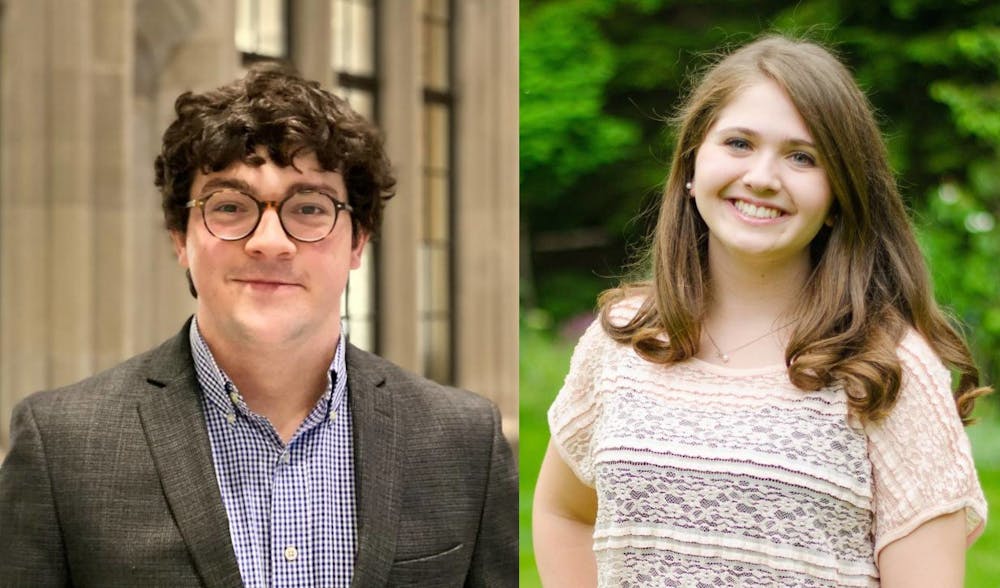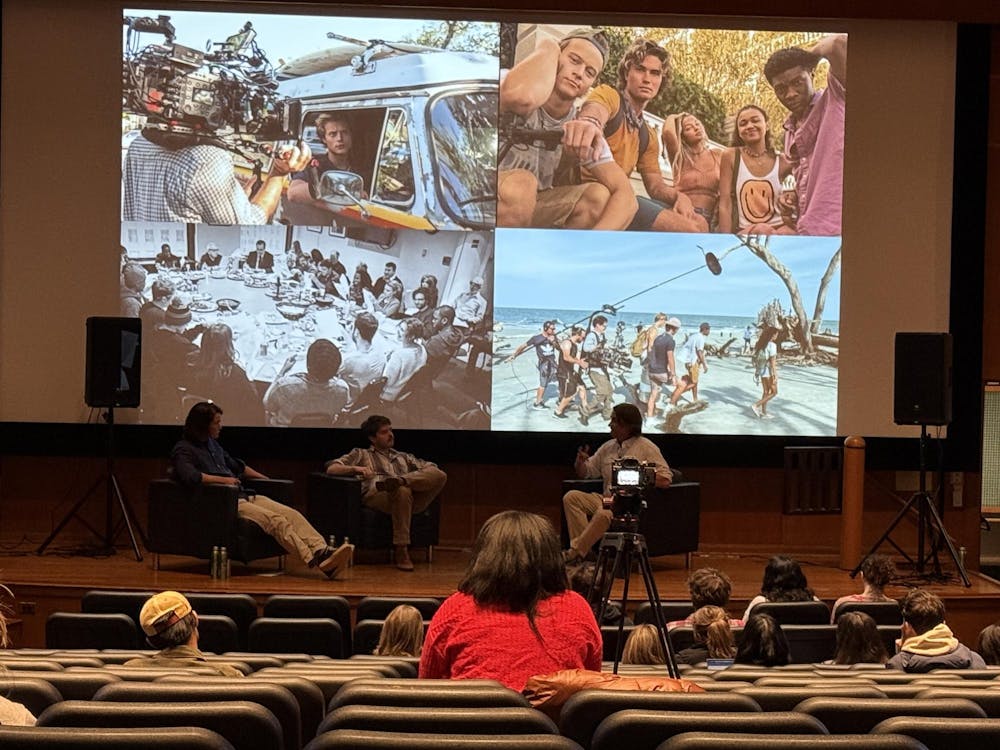Avital Fried ’20 and Andrew Brown ’20 have been awarded 2020 Marshall Scholarships. The scholarship covers the cost of two years of graduate study in the United Kingdom at the university of the recipient’s choice.
Brown and Fried will join a cohort of 46 students awarded the scholarship, which seeks to promote “strong relations between the UK and the United States by offering intellectually distinguished young Americans the opportunity to develop their abilities as future leaders,” according to the University’s statement.
In its history, 134 University students have been awarded the Marshall Scholarship, according to data from the scholarship’s website. The annual scholarship was first founded in 1953 by the Parliament of the United Kingdom in recognition of U.S. Secretary of State George C. Marshall, best known as the architect of the Marshall Plan, which assisted European nations in economic recovery after World War II. The program currently has an alumni network of about 2000 people.
Fried, a concentrator in the philosophy department, hails from Newton, Mass. and is pursuing certificates in Arabic language and culture, values and public life, and Near Eastern Studies. As a Marshall Scholar, she will attend Oxford University and intends to earn a B.Phil in philosophy.
“I’m really interested in [the] philosophy of punishment and the ways philosophy can inform the ways we think about our legal systems,” Fried said.
She explained that she is particularly interested in how legal systems evolve to deal with the relatively new challenge of transnational terrorism and the ways philosophy can play a role in understanding the ethical issues that arise from that.
Her senior thesis builds on these themes, examining the ethics of prosecuting U.S. military detainees at Guantanamo Bay.
Elizabeth Harman, Fried’s thesis advisor and the Laurance S. Rockefeller Professor of Philosophy, said her advisee’s thesis will be a “tour de force.”
“Her thesis mixes abstract philosophical argument about the justification of punishment with specific analysis of this case,” she said, according to the Office of Communications.
This past summer, Fried interned at Phillips Black, assisting a legal team in defending death row inmates, and has previously interned for the Military Commissions Defense Organization, working with lawyers representing a Guantanamo detainee. She has also volunteered with the Petey Greene Program, tutoring incarcerated individuals at the Garden State Youth Correctional Facility.
Fried sees her future as a lawyer, hoping to return to the U.S. after her time in England and eventually represent individuals facing the most serious penalties. For now, she’s most excited to immerse herself in a new academic environment.
“I’m really excited to be a part of this new cohort … it seems like the other students are really interesting, and I’m excited to get to know them and learn from them,” said Fried. “I’m also really excited to go to England and spend time in London.”

On campus, Fried has been the head fellow at the Princeton Writing Center, a member of Behrman Undergraduate Society of Fellows, and an Orange Key tour guide, in addition to being involved with the Center for Jewish Life, Chabad, the Princeton Yavneh Community, and the Princeton Debate Panel.
Hailing from Louisville, KY, Brown is a senior in the physics department. Through the Marshall Scholarship, he will pursue an M.S. in mathematical and theoretical physics at the University of Oxford, as well as an M.S. in applied mathematics at Imperial College London.
At the time of publication, Brown had not responded to request for comment from The Daily Princetonian.
Brown first became interested in the potential for fusion energy at a young age, according to the University’s statement, since he grew up in Central City, KY, a town once booming due to its coal mining industry and now facing decline. Brown chose to attend the University due to the fusion research community at the Princeton Plasma Physics Laboratory (PPPL).
He has previously been awarded the Kusaka Memorial Prize in Physics, the Shapiro Prize for Academic Excellence and the Manfred Pyka Memorial Prize in Physics. After his time in England, Brown intends to return to the U.S. and pursue a Ph.D. in plasma or applied math, focusing on the mathematical problems that arise from nuclear fusion theory.
Robert Goldston, Brown’s mentor and a professor of astrophysical sciences, discussed the cutting edge nature of Brown’s senior thesis work, an extension of a summer collaboration with him.
“If we are lucky, [the work] will have a big impact on the understanding of the edge of fusion plasmas, where they touch material surfaces. This is, so to speak, where the rubber meets the road for fusion energy,” Goldston told the Office of Communications.
During his time at the University, Brown co-taught a semester in spoken word poetry to incarcerated adults through the Prison Electives Program. He is a member of Ellipses Slam Poetry, the a cappella groups Acapellago and Koleinu, the Religious Life Council, the Behrman Undergraduate Society of Fellows, and served as a Community Action leader.








